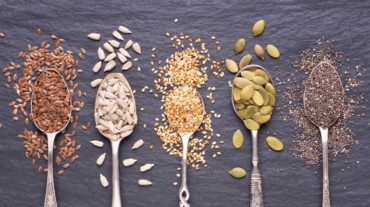
The World Health Organization (WHO) puts it as simply and succinctly as this: “A healthy diet is essential for good health and nutrition”. To cut the short story shorter, we are what we eat. And the food that we consume not just feeds our body, but also our mind. So, it becomes inherently important to eat and make your loved ones eat right for the sake of the family’s health.
The social media world is flooded with people propagating fancy diets and expensive superfoods, which may even work the kind of wonders one hopes they should, but then why must we forget the basics?

Being mindful of what we eat, even though indulgences may be allowed every now and then, can play a huge role in keeping infections at bay, boosting immunity, fighting diseases, promoting growth among children, and keeping us nourished with essential micronutrients. This has naturally assumed greater importance in the wake of the Covid-19 pandemic, which has given everyone a ‘zor ka jhatka’ about the need for stronger immunity to fight the coronavirus menace.
Amidst the pool of information on do’s and don’ts about diets, it is easy to get confused about how to really optimise diet for your own and your family’s health, especially considering how the third wave of Covid-19 remains imminent.
For the occasion of the National Nutrition Week, Dr Smriti Sharma, PhD Food and Nutrition, University of Delhi, has simplified this quandary for us a little.
Dr Sharma has shared these pertinent points which you can inculcate at home to benefit your family’s health:
Fats and oils have been wrongly blamed for causing chronic illnesses. With this information, you do not have to bring your fried snacks back on the table – sorry for the bummer! Include sources of omega 3 fatty acids in your diet and reduce refined vegetable oils rich in omega 6 fatty acids. Omega 6 and omega 3 fatty acids are both required in equal quantities by our body from the food we eat. High intake of refined oil disturbs the ratio in which these two fatty acids are required resulting in detrimental impact on the body. To optimise this ratio, strive to reduce rich sources of omega 6 fatty acids such as sunflower, safflower, soyabean, corn-refined oils. You can include desi ghee, olive oil, mustard oil instead for daily cooking.

Carbohydrates, a macronutrient, makes a part of almost all foods we eat, excluding fats, oils, butter. Refined or whole wheat, rice or millets, potato or spinach, carbohydrates are present in varying quantities in all. And, if chosen correctly, it brings together the benefits of fiber for the gut and vitamins and minerals. Eliminating intake of processed simple carbohydrate-loaded foods such as bread, noodles, biscuits and allied snacks, will go a long way in maintaining your health. Furthermore, adding foxtail millets to your diet, and including ragi, bajra, in your wheat flour will help. At the same time, increasing your portion size of pulses and nuts by decreasing cereals will help balance your diet with the goodness of health.
Also Read: Did you know choosing the right cooking oil can help improve your skin?
Animal foods, as the name suggests, includes items that come from animals. These include milk, cream, egg, cheese, cottage cheese, yogurt, fish, meat, chicken. Animal source foods can provide a variety of micronutrients that are difficult to obtain in adequate quantities from plant-source foods alone. Vegetarians tend to be particularly deficient in some of the nutrients such as Vitamin B-12 and consumption of dairy products becomes essential. Those of you who enjoy animal foods should include fish and whole eggs (yes you read that right – eggs with the yolk!) in your daily diet.
Select Topics of your interest and let us customize your feed.
PERSONALISE NOW
We need to first keep away from sugar. While we do recognise sweets, chocolates, aerated drinks in this category easily; brown sugar, jaggery, honey, high fructose corn syrup are also different forms of sugar, which go unrecognised. They contain similar amounts of calories and have the same effect on our blood sugar levels as consuming raw sugar. The advantages advocated for some of the minerals they have, are well, in trace amounts, and can be sourced in your diet from other foods.
Seeds are rich in fats, protein, fibre, calcium, iron, magnesium, vitamin B-6, zinc, among other vitamins and minerals. Flaxseeds, chia seeds are also great sources of omega 3 for vegetarians who cannot consume fish! As you lower your intake of carbohydrates, including seeds, like flax, sesame, chia, pumpkin, melon seed, and nuts, like walnuts, peanuts, almonds, can make up for those lost calories while providing wholesome nutrition. You can soak chia seeds and drink, or you can include substantial amounts in your daily salads, and enjoy roasted seeds as snacks. And guess what? You can even make your own bread using almond flour or flaxseed flour! The floor to experiment is all yours.
It’s time to keep it simple and reinvent how you see nutrition for yourself and for your family’s health.